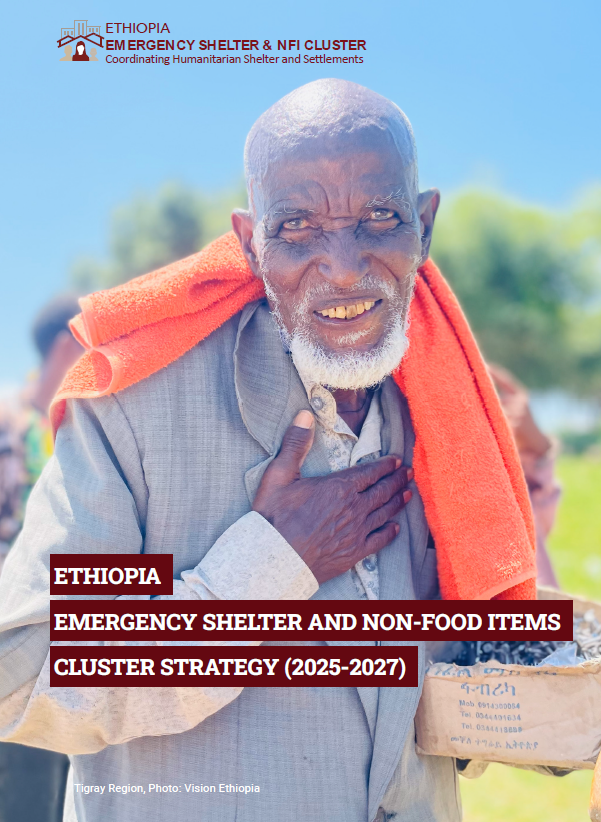Ethiopia
Ethiopia Emergency Shelter and Non-Food Items Cluster Strategy (2025-2027)
This document outlines the three-year strategic plans of the Ethiopian Emergency Shelter and NFI Cluster (ES/NFI Cluster), which define the collective vision, mission, objectives, and values that will inform the joint action of the Cluster members. The ES/NFI Cluster strives to deliver high-quality, efficient, and accountable Shelter and Non-Food Item (NFI) assistance to the people most in need of humanitarian support due to natural or human-induced disasters. To achieve the goals of the strategy, the Cluster members are required to actively engage with and contribute to the Cluster’s implementation plan and monitoring framework.
The ES/NFI Cluster comprises national and international non-governmental organizations (NGOs), international organizations, and United Nations (UN) agencies that provide humanitarian Shelter and NFI response to the displaced population. The Cluster has been operating in Ethiopia since 2008. The three-year ES/NFI Cluster strategy for Ethiopia covers the period from 2025 to 2027. It acknowledges the diversity and complexity of the contexts across Ethiopia, as well as the specific needs of each location. The strategy has been developed with the participation of the Government and other relevant stakeholders, including other clusters and partners, and aligned with the Global Shelter Cluster (GSC). It also recognizes the need for close coordination and integration of Shelter and NFI assistance with other sectors to address the wider needs of the affected population. The strategy is based on the premise that shelter and NFI interventions should be complementary and harmonized with the efforts of the Government and civil society.

